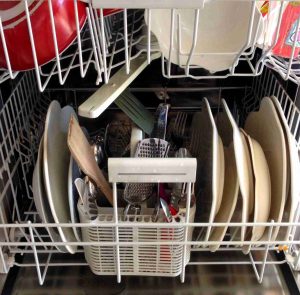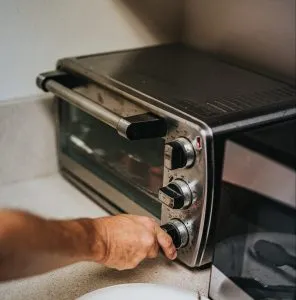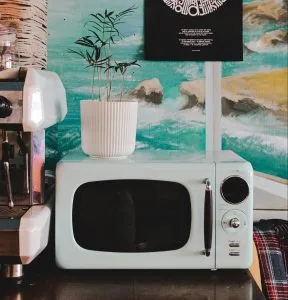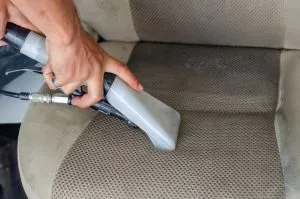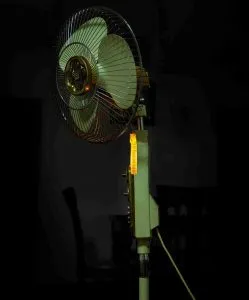Contents
ToggleKey Takeaway:
- It is not advisable to abandon your storage unit as it can have serious consequences. Leaving your belongings in a storage unit without fulfilling your lease agreement and payment terms can lead to legal and financial troubles.
- If you are unable to pay rent for your storage unit, it is important to notify the property manager and discuss alternative options. Avoid leaving your belongings behind and make sure to tidy up before moving out to avoid additional charges or complications.
- Abandoning a storage unit can result in defaulting on rent, leading to a grace period and potential lockout. The facility will make an attempt to contact you before taking further actions such as replacing the lock or auctioning off your items. It is best to avoid this situation by taking responsibility for your storage unit and resolving any payment issues.
- Storage facilities prefer not to auction items as it can be costly for them. It is in both parties’ best interest to maintain open communication and work towards resolving payment issues. By taking responsibility and fulfilling your rental obligations, you can avoid the need for storage auctions.
- In conclusion, it is important to take responsibility for your storage unit and avoid abandonment. By fulfilling your lease agreement, communicating with the property manager, and resolving payment issues, you can ensure a smooth and positive experience with your storage facility.
Can I abandon my storage unit?

When it comes to considering abandoning a storage unit, you may wonder about the consequences and obligations involved. Let’s take a closer look at what happens if you leave your belongings in a storage unit and the implications of doing so.
It’s essential to refer to the lease agreement and payment terms to understand the specific guidelines set by the storage facility. By understanding the legal and financial aspects, you can make an informed decision about the fate of your storage unit.
What happens if I leave stuff in a storage unit?
Leaving belongings in a storage unit can have consequences. If items are abandoned, the storage facility may take action according to the lease agreement and payment terms. It is important to inform the property manager if one can no longer pay rent, as leaving things behind may result in further complications. Before moving out, it is advisable to tidy up the unit and remove all personal belongings.
Defaulting on rent can lead to a lockout and replacement of the lock by the facility. The facility will attempt to contact the renter before taking any legal action. Storage facilities prefer not to auction items due to the cost involved and emphasize the importance of communication to resolve payment issues. Thus, it is crucial to take responsibility for your storage unit and avoid abandonment.
If you’re considering alternative uses for your storage unit, such as turning it into a workshop, make sure to check with your facility manager first. You can learn more about this topic here.
Lease agreements and payment terms may not be the most exciting bedtime reading, but they’ll definitely wake you up when it comes to abandoning your storage unit.
Reference to the lease agreement and payment terms
A lease agreement is a legally binding document that outlines the terms and conditions of renting a storage unit. It includes details about the rental period, payment terms, and any penalties or fees for late payments or early termination. The reference to the lease agreement and payment terms ensures that both the renter and the storage facility understand their rights and responsibilities.
Having a clear understanding of the lease agreement and payment terms is crucial for both parties involved. It helps prevent any confusion or disputes regarding rent payments, late fees, or other financial obligations. By referencing the lease agreement, renters can ensure that they fulfill their payment obligations on time and avoid any potential consequences.
Payment terms typically include information on when rent is due, accepted forms of payment, and any penalties for late or missed payments. It is important for renters to adhere to these terms to maintain a good relationship with the storage facility.
By referencing the lease agreement and payment terms, renters can navigate through their financial responsibilities smoothly. Understanding these terms allows them to make informed decisions about their storage unit rental and avoid any issues related to non-payment or defaulting on rent.
Before you start using your storage unit as a trendy hideout for the neighborhood squirrels, here’s what you should do if you can no longer pay the rent.
What should I do if I can no longer pay the storage unit rent?

In times of financial difficulties, many individuals may find themselves unable to afford the rent for their storage unit. If you’re facing this situation, it’s important to know what steps you can take to address the issue. One crucial step is to notify the property manager about your circumstances. Not only does this help maintain open communication, but it may also allow for potential negotiation or alternative solutions.
Additionally, it’s essential to remember not to leave any belongings behind as this can lead to legal complications. Lastly, tidying up your unit before moving out demonstrates responsible behavior and leaves a positive impression.
Notify the property manager
When informing the property manager about your situation, it is essential to follow the correct steps. Here is a concise guide on how to notify the property manager:
- Provide timely notice: Inform the property manager as soon as possible regarding your inability to pay the storage unit rent.
- Maintain clear communication: Keep the property manager informed of any changes or updates to your circumstances that may affect your ability to make payment.
- Be proactive in finding a solution: Discuss available options with the property manager, such as adjusting payment terms or exploring alternative arrangements.
- Follow their instructions: Cooperate with any requests made by the property manager, such as providing documentation or attending meetings.
- Keep records of communication: Document all conversations and correspondence with the property manager for future reference.
It is crucial to approach notifying the property manager professionally and promptly in order to maintain a positive relationship and resolve any issues effectively.
In addition to these steps, remember that open and transparent communication is key when dealing with financial obligations related to storage units.
Leaving things behind in a storage unit is like leaving a bad joke at the end of an article – it just doesn’t work.
Don’t leave things behind
Leaving items behind in a storage unit can have consequences. To avoid this, follow these 5 steps:
- Sort and declutter: Before moving out, go through all your belongings and decide what to keep, sell, or donate. For instance, if you have a lawn mower stored in your unit, you might want to consider storing it in your garage instead. Here are some tips on how to do that.
- Pack smartly: Use appropriate packing materials and label each box clearly to make it easier to find things later. If you have specific items like fishing rods, you might need a more specialized approach for storage. Learn about how to store fishing rods in your garage instead.
- Clean the unit: Sweep or vacuum the floor, remove trash or debris, and ensure everything is organized before leaving.
- Check for damages: Inspect the unit for any damages and report them to the property manager immediately.
- Inform the property manager: Let them know in advance that you are vacating the unit so they can prepare for new tenants.
Remember, a well-organized and clean storage unit will not only make moving out easier but also help you avoid any penalties or additional charges. Take responsibility for your belongings and don’t leave things behind!
Storage facilities prioritize clear communication and resolving payment issues rather than auctioning off items unnecessarily. These measures ensure both parties can find a mutually beneficial solution without resorting to abandonment or loss of personal belongings.
Take action now to avoid missing out on your stored items! By following these steps, you can prevent unnecessary stress and expenses associated with abandoned storage units. Your possessions deserve your attention and care, so don’t delay!
Don’t leave a mess behind, unless you want your storage unit to double as a garbage dump.
Tidy up before moving out
Before vacating the storage unit, it is essential to organize and clean the space in a professional manner. This ensures that the unit is ready for the next renter and leaves a good impression on the property manager. Tidying up before moving out includes several steps that need to be followed diligently.
- Sort and declutter: Begin by sorting through your belongings and determining what you want to keep, sell, donate, or discard. This will help streamline the packing process and prevent unnecessary items from being left behind.
- Clean the unit: Give the storage unit a thorough cleaning before you leave. Sweep or vacuum the floor, wipe down surfaces, and remove any dust or debris. This will help maintain the cleanliness of the facility for future renters.
- Remove all personal belongings: Take all of your belongings with you when moving out of the storage unit. Leaving personal items behind not only creates inconvenience for others but may also result in additional charges or penalties.
- Dispose of trash responsibly: Properly dispose of any trash or unwanted items during your move-out process. Consider recycling or donating usable items instead of throwing them away.
- Return any borrowed equipment: If you borrowed carts, dollies, or other equipment from the storage facility, make sure to return them before leaving. Returning these items promptly shows respect for the property manager’s resources.
- Communicate with the property manager: Inform the property manager about your intention to move out and confirm that all necessary steps have been taken to tidy up and vacate properly.
Taking these steps to tidy up before moving out not only helps maintain a positive relationship with the storage facility but also ensures a smooth transition for both parties involved.
It is important to note that neglecting to tidy up before moving out can lead to complications such as additional charges or penalties imposed by the storage facility management.
Consequences of abandoning a storage unit
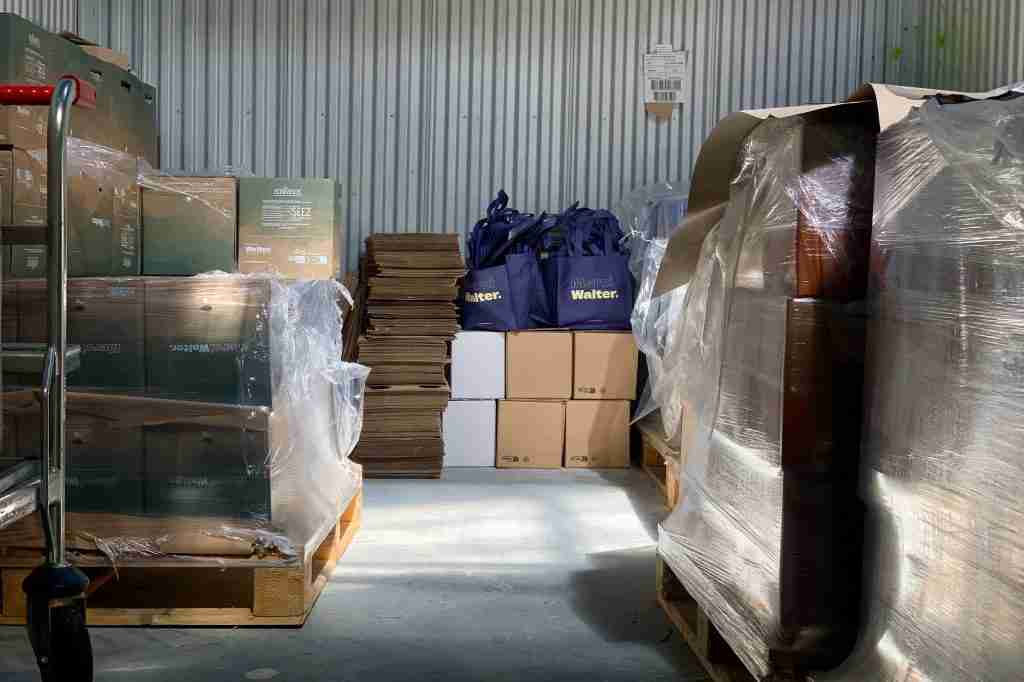
In exploring the consequences of abandoning a storage unit, it becomes evident that certain actions and events unfold. For instance, defaulting on rental payments and the subsequent grace period can have significant repercussions. Additionally, being locked out of the storage unit and having the lock replaced poses challenges and further complications. Moreover, attempts to establish contact with the renter play a crucial role in understanding the outcomes of abandoning a storage unit. By exploring these aspects, we can shed light on the potential impacts and responsibilities associated with such actions.
Defaulting on rent and grace period
Defaulting on rent and the grace period refers to the situation where a renter fails to make payments for their storage unit within the designated time frame. This can have several consequences for the renter and the storage facility.
- If a renter defaults on their rent, they may face additional fees or penalties.
- The grace period allows a short window of time after the due date for renters to make their payment without incurring these additional charges.
- However, if the renter does not make payment within the grace period, they may risk losing access to their unit.
- In addition, the storage facility may attempt to contact the renter to resolve any payment issues before taking further steps.
It is important for renters to understand that defaulting on rent and the grace period can have serious consequences. Therefore, it is crucial to communicate with the storage facility if there are any difficulties in making timely payments and explore potential solutions together. Open and honest communication can often help avoid situations where abandonments occur due to financial challenges.
Lockout and replacement of lock: When it comes to abandoning your storage unit, you’ll learn firsthand that locks can be replaced, but your credit score can’t.
Lockout and replacement of lock
When faced with lockout and the need for lock replacement, it is vital to follow proper procedures. Here is a step-by-step guide to help you navigate this situation:
- Communicate with the property manager or storage facility staff about the lockout issue as soon as possible.
- Provide any necessary proof of identification or ownership of the storage unit.
- Follow their instructions regarding lock replacement, which may involve paying a fee for a new lock.
- Cooperate fully with the staff during the lockout process and be prepared to show identification again if requested.
- Once the new lock is installed, make sure to securely store your key or access code.
- Regularly update your contact information with the storage facility to ensure efficient communication in case of future incidents.
It’s important to note that these steps are crucial in resolving a lockout and replacing the lock smoothly without further complications or delays.
In addition to the information provided above, it is crucial to cooperate fully with the storage facility staff during this process. Their objective is to maintain security and protect both your belongings and those of other renters. By following their instructions and procedures, you can help ensure a satisfactory resolution.
One notable incident involving lockout and replacement of locks occurred when a renter lost their keys but failed to notify the storage facility promptly. The renter was eventually locked out due to suspicion of unauthorized access attempts. After an investigation and verification of ownership, new locks were installed on their unit, highlighting the importance of timely communication in such situations.
Attempting to contact the renter is like finding a needle in a storage unit haystack, but it’s worth a shot before resorting to drastic measures.
Attempt to contact the renter
First and foremost, it is important for storage facilities to make every effort to reach out to the renter before taking any further action. This allows for open communication and the potential resolution of any outstanding payment issues.
To ensure proper communication, follow these six steps:
- Initiate contact: Begin by attempting to contact the renter via phone call or email. Provide clear instructions on how they can resolve the payment issue and retrieve their belongings.
- Multiple attempts: If initial contact is unsuccessful, make multiple attempts at reaching out. Leave voicemails if necessary and send reminders via email.
- Written notice: If all efforts fail, send a written notice via certified mail. This will serve as an official document outlining the situation and providing a final opportunity for the renter to take action.
- Keep detailed records: Document each interaction with the renter, including dates, times, and any responses received. This documentation will be useful in case legal proceedings become necessary.
- Utilize alternative contact information: If you are unable to reach the renter through their provided phone number or email address, consider utilizing any alternative contact information available, such as an emergency contact.
- Last resort: In extreme cases where all attempts have been exhausted and there remains no response from the renter, seeking legal advice may become necessary to explore further actions.
It should be noted that every storage facility wants to avoid this situation as much as possible. By attempting multiple forms of communication and diligently maintaining records of each interaction, storage facilities can demonstrate their commitment to resolving payment issues while still respecting the rights of their renters.
The only auctions these storage facilities want to be a part of involve bidding wars over abandoned storage units, not the items inside.
Why do storage facilities prefer not to auction items

In this section, let’s dive into why storage facilities are hesitant to auction items stored in their units. It’s interesting to note that one of the main reasons is the cost involved in conducting storage auctions. According to industry data from StorageAuctions.com, organizing these auctions can require significant resources, such as advertising, staff time, and logistical arrangements. Moreover, effective communication and resolving payment issues play a crucial role in avoiding the need for auctions. By understanding these factors, we can gain insights into the reasons behind storage facilities’ preference for alternative solutions.
Cost of storage auctions for the facility
The expenses associated with conducting storage auctions at the facility can have a significant impact on the overall operation. Here is a breakdown of the cost of storage auctions for the facility:
| Cost Category | Amount |
|---|---|
| Advertising | $500 |
| Auctioneer fee | $1,000 |
| Storage unit cleaning and preparation | $300 |
| Administrative costs | $200 |
These costs reflect the financial burden placed on the facility when organizing and executing storage auctions. It is important to minimize these expenses by encouraging communication and resolving payment issues with renters to avoid reaching this point.
In addition to these mentioned costs, there may be other expenses incurred in cases where legal proceedings are required or additional efforts are needed to recover unpaid rent or abandoned belongings. To ensure the smooth operation of the facility and avoid unnecessary financial strain, it is crucial for renters to fulfill their payment obligations and take responsibility for their storage units.
Failure to do so not only results in financial consequences for both parties but also undermines trust and communication within the facility community.
Take action now to prevent potential abandonment scenarios and alleviate any future concerns about the cost of storage auctions for the facility.
Communication is the key to avoiding storage unit auctions and becoming best friends with your property manager.
Importance of communication and resolving payment issues
Establishing open lines of communication and promptly addressing payment issues are crucial in maintaining a successful storage unit rental. Clear, honest communication with the property manager ensures mutual understanding and facilitates timely resolution of any payment concerns that may arise. By addressing these matters directly, tenants can avoid potential consequences such as lockouts or the replacement of locks.
Maintaining effective communication displays a sense of responsibility and allows both parties to work together to find a solution to any financial difficulties. It is important for renters to notify the property manager as soon as they anticipate being unable to pay their storage unit rent. This proactive approach not only cultivates trust but also gives the facility an opportunity to potentially offer alternative arrangements or grace periods.
While resolving payment issues through open dialogue is essential, it is equally important not to abandon the storage unit when faced with financial challenges. Abandonment not only results in defaulting on rent payments but can also lead to additional costs for the facility, such as storage auctions.
By tidying up before moving out and removing all personal belongings, tenants demonstrate accountability and minimize expenses for both parties involved.
Conclusion: Take responsibility for your storage unit and avoid abandonment.
Taking responsibility for your storage unit is crucial to avoid abandoning it. By properly managing your storage unit, you can prevent the negative consequences that come with abandonment. It is essential to understand the terms and conditions of your storage agreement, maintain regular communication with the facility, and ensure timely and complete payment of fees. Neglecting these responsibilities may lead to penalties, loss of belongings, and legal disputes. Taking proactive measures to address any issues or changing circumstances related to your storage unit is essential to avoid abandonment and maintain a positive and mutually beneficial relationship with the storage facility. Remember, proper responsibility and attention to your storage unit are key to avoiding abandonment.
When it comes to your storage unit, it is crucial to take responsibility and avoid abandonment. By staying informed about your storage agreement, regularly communicating with the facility, and promptly paying fees, you can prevent the negative consequences associated with neglecting your unit. Neglecting your duties may result in penalties, the loss of your belongings, and even legal disputes. Taking proactive steps to address any concerns or changes regarding your storage unit is necessary to maintain a positive and harmonious relationship with the facility. Abandoning your unit is not a solution; instead, responsible management is the key to a successful storage experience.
It is important to note that abandoning your storage unit can have severe consequences. Apart from the financial and legal implications, you may also lose valuable personal belongings. To avoid this situation, it is vital to prioritize your responsibilities towards the unit and ensure all terms and conditions of the agreement are met. By doing so, you can protect your belongings and maintain a satisfactory relationship with the storage facility. Remember, taking ownership of your storage unit is the best way to prevent abandonment and any associated troubles.
A true fact: According to a survey conducted by SpareFoot, a leading storage marketplace, approximately 10% of storage unit renters abandon their units each year.
Some Facts About Abandoning a Storage Unit:
- ✅ When you are late on your rent for a storage unit, you will be given a grace period of a few days to make the payment before late fees are added. (Source: Team Research)
- ✅ If you miss a certain number of payments, the storage unit is considered abandoned and the property manager can confiscate its contents and auction them. (Source: Team Research)
- ✅ If you can no longer afford to pay the storage fee, the best thing to do is to move your items out of the storage unit and notify the property manager. (Source: Team Research)
- ✅ When moving out of a storage unit, make sure to double-check and pick up all your items to avoid being charged a clean-out fee. (Source: Team Research)
- ✅ It is important to tidy up and clean the storage unit before moving out to avoid any extra charges or penalties. (Source: Team Research)
FAQs about Can I Abandon My Storage Unit
Can I abandon my storage unit if I can no longer afford to pay the rent?
No, it is not recommended to abandon your storage unit if you can no longer afford to pay the rent. Instead, it is best to notify the property manager and discuss your situation with them. They can provide guidance on moving out properly and may even assist you if you have been a good tenant.
What should I do if I can no longer afford to pay the storage unit rent?
If you anticipate that you will not be able to pay the storage fee on time due to a significant life change affecting your finances, the best course of action is to move your items out of the storage unit. Notify the property manager in advance and follow their guidelines for moving out.
How much notice should I give before moving out of a storage unit?
It is ideal to provide at least a five or six-day notice before you move out of a storage unit. This gives the property manager enough time to prepare the necessary paperwork and make arrangements for your move out.
What happens if I leave items behind in a storage unit when moving out?
If you leave items behind in a storage unit when moving out, you may be charged a clean-out fee based on the items left behind. It is important to double-check your storage space and ensure you take everything with you or consider donating unwanted items to avoid additional charges.
What happens if I fail to pay the monthly rent on time for my storage unit?
If you fail to pay the monthly rent on time for your storage unit, your unit will go into default. The grace period, usually 30 days, is outlined in the lease agreement. Once in default, you will be locked out of the unit, and the property manager may cut the lock and replace it with a red lock. It is important to comply with any warnings or notices posted on the unit’s door.
Do storage facilities prefer to auction off abandoned items?
No, storage facilities generally do not prefer to auction off abandoned items. Storage auctions can be time-consuming and costly for the facility. They would rather tenants properly move out their items or make arrangements to pay the rent on time.
Additional Reading
In expanding your understanding of the implications and alternatives to abandoning a storage unit, the following articles could prove informative:
- How to Open a Locked Garage Door from the Outside Without a Key: This article can provide insights into access issues which might also apply to certain storage units.
- How to Get Rid of Flies in Garage: Learn how to deal with pests—an issue that can affect any storage space.
- How to Extend Wifi to Detached Garage: If your concerns are about access to amenities like internet in the storage unit, this article provides a solution.
- How to Seal a Garage Floor: Understand how to maintain and protect the floor of a storage space, which might address some of your dissatisfaction with the unit.
- How Much Does it Cost to Insulate a Garage?: Gain perspective on the costs of making a storage space more comfortable, which might affect your decision on whether to abandon it.






















